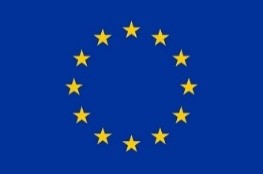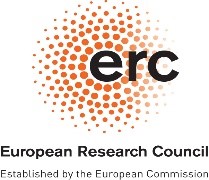Received:
2023-07-11 | Accepted:
2023-11-14 | Published:
2023-12-30
Title
South Africa's "Triple Crisis of Governance" and Societal Leadership Vacuum
Abstract
This article demonstrates that corruption, illegality and insecurity, which escalated with the ruling African National Congress' (ANC's) deconsecration of South Africa's stateness, are reigning under the grip of the "triple crisis of governance" and societal leadership vacuum. It argues that South Africa's defiled stateness has allowed for the ceding of public/state power and authority to non-state actors, intolerance of state-society subsidiarity, abuse of state power, industrial-scale corruption and persecution of whistleblowers. The article cites tales of persecution and killing of whistleblowers and the extraordinarily high proportion of public distrust of key state institutions and the political system that created an ominous societal leadership vacuum as indicators of the "triple crisis of governance" and deconsecrated stateness. It holds that political party state governance is not absolute; instead, it is "relational" and "situational," requiring citizenry legitimacy and public trust, which are vested with state-society subsidiarity, without which control of public/state power and authority would be impossible outside the use of force, violence or fraudulent means. This article concludes that having ceded public/state power and authority to non-state actors and deconsecrating stateness, the ANC allowed for the consolidation of an ominous societal leadership vacuum under which the South African democratic experiment would not endure. Therefore, the ANC's solace about lost votes not accruing to opposition parties is delusional because an increasing majority of South Africans are now willing to forego electoral democracy and to settle for an unelected but effective government that guarantees security, legality, rule of law and accountability. This article recommends that institutions of society embark on nationwide campaigns to sanctify South Africa's stateness and counter the phenomenon of defiled statehood by reinvigorating the vibrancy of citizenship in the democratic experiment.
Keywords
governance, democratic experiment, stateness, state-society subsidiarity, deconsecration, corruption, whistleblowing, democracy
JEL classifications
R50
URI
http://jssidoi.org/ird/article/144
DOI
Pages
23-35
Funding
This is an open access issue and all published articles are licensed under a
Creative Commons Attribution 4.0 International License
References
Alexander, J., Israel, P., Larmer, M. & De Oliveira, R.S. (2020). Liberation beyond the nation: An introduction. Journal of Southern African Studies, 46(5), 821-828. https://doi.org/10.1080/03057070.2020.1810912
Search via ReFindit
Alexander, J., McGregor, J. & Tendi, B-M. (2017). The transnational histories of southern African liberation movements: An introduction. Journal of Southern African Studies, 43(1), 1-12. https://doi.org/10.1080/03057070.2017.1278982
Search via ReFindit
Alkon, M. & Urpelainen, J. (2018). Trust in Government and Subsidy Reform: Evidence from a Survey of Indian Farmers. (Accessed: August 17, 2022). https://ssrn.com/abstract=3150332
Search via ReFindit
Bertelsmann Stiftung’s Transformation Index (BTI). (2022). BTI 2022 Country Report: South Africa. Gütersloh: Bertelsmann Stiftung.
Search via ReFindit
Brankovic, J. (2019). Participatory Methods in Violence Prevention: Lessons from CSVR’s Collaboration with the Community Work Programme in South Africa. Ottawa: Centre for the Study of Violence and Reconciliation (CSVR).
Search via ReFindit
Calland, R. & Sithole, M.D. (2021). South Africa since 1994: A mixed bag of presidents and patchy institution-building. The Conversation, July 21, 2021.
Search via ReFindit
Carson, L.D. & Mota Prado, M. (2016). Using institutional multiplicity to address corruption as a collective action problem: Lessons from the Brazilian case. The Quarterly Review of Economics and Finance, (62), 56-65. https://doi.org/10.1016/j.qref.2016.07.009
Search via ReFindit
Clapham, C. (2006). Ethiopian development: The politics of emulation. Commonwealth & Comparative Politics, 44(1), 137-150. https://doi.org/10.1080/14662040600624536
Search via ReFindit
Clarke, J.G. (2021). Story of a whistleblower: “Baba, do you think you are about to die? Mail & Guardian, December 03, 2021, Johannesburg.
Search via ReFindit
Dallywater, L., Saunders, C. & Fonseca, H.A. (eds.). (2019). Southern African Liberation Movements and the Global Cold War “East:” Transnational Activism, 1960–1990. Berlin: De Gruyter. https://doi.org/10.1515/9783110642964
Search via ReFindit
Diamond, L. (2005). The state of democracy at the beginning of the 21st century. The Whitehead Journal of Diplomacy and International Relations, Winter/Spring: 13-18.
Search via ReFindit
Farooqi, S., Abud, G. & Ahmed, A. (2017). How bad it is to be good: Impact of organisational ethical culture on whistleblowing the ethical partners. Arab Economic and Business Journal, 12. 69-80. https://doi.org/10.1016/j.aebj.2017.06.001
Search via ReFindit
Festenstein, M. (2020). Political trust, commitment and responsiveness. Political Studies, 68(2), 446-462. https://doi.org/10.1177/0032321719852569
Search via ReFindit
Frohlich, S. (2022). Africa’s Whistleblowers Pay a High Price for their Courage. (Accessed: August 24, 2022). https://www.dw.com/en/africa-whistleblowers-pay-high-price-for-truth/a-61146475
Search via ReFindit
Gavin, M. (2021). Murder of South African whistlebolwer illustrates dangerous status quo. Foreign Affairs, September 10, 2021.
Search via ReFindit
Gleijeses, P. (2003). Conflicting Missions: Havana, Washington and Pretoria, and the Struggle for Southern Africa, 1976–1991. Chapel Hill: University of North Carolina Press.
Search via ReFindit
Halpin, L. & Dundon, T. (2017). Whistleblowing and the employment relations Implications of the Protected Disclosures Act 2014 in the Republic of Ireland. Irish Journal of Management, 36(3), 221-232. https://doi.org/10.1515/ijm-2017-0009
Search via ReFindit
Independent Electoral Commission (IEC). (2019). National and Provincial Elections Report, 2019. Centurion: IEC.
Search via ReFindit
Independent Electoral Commission (IEC). (2021). Local Government Elections Report, 2021. Centurion: IEC.
Search via ReFindit
Jansen, Z. (2022). Brave whistleblowers need proper protection. Independent Online (IOL), July 23, 2022.
Search via ReFindit
Jooma, M.B. (2006). Darfur and the battle for Khartoum. Institute for Security Studies (ISS) Situation Report, 4, 3-4.
Search via ReFindit
Kew, D. (2005). Building democracy in 21st century Africa: Two Africas, one solution. The Whitehead Journal of Diplomacy and International Relations, Winter/Spring, 149-161.
Search via ReFindit
Kumagai, S. & Iorio, F. (2019). Building Trust in Government through Citizen Engagement. New York: World Bank Group. https://doi.org/10.1596/33346
Search via ReFindit
Mamdani, M. (2005). Identity and national governance. In Wisner, B. et al., (eds.), Towards a New Map of Africa. London: Earthscan.
Search via ReFindit
Mojapelo, J. (2022). Snitches get stitches a whistleblowers conundrum, who is protecting the whistleblowers? Exploring the personal and organisational experiences of South African whistleblowers. ResearchGate, (Accessed: August 24, 2022). https://www.researchgate.net/publication/361208811
Search via ReFindit
Mojapelo, J. & Faku, E.M. (2019). Reluctance of employee’s to blow the whistle in the public and private sector of South Africa: Exploring the Protected Disclosure Act 26 of 2000. Journal of Public Administration and Development Alternatives, 4(1), 55-66.
Search via ReFindit
Moosa, M. & Hofmeyr, J. (2021). South Africans’ trust in institutions and representatives reaches new low. Afrobarometer Dispatch, 474, 1-17.
Search via ReFindit
Mosimann-Barbier, M-C. (2014). From Bearn to Southern Africa or the Amazing Destiny of Eugene Casalis. Cambridge: Cambridge Scholars.
Search via ReFindit
Muller, M. (2021). South Africa's Social and Political Challenges Covid Exacerbates Socio-economic Inequalities amid ANC Infighting. German Institute for International and Security Affairs, Stiftung Wissenschaft und Politik, (SWP) Comment 61, December 2021.
Search via ReFindit
Narsiah, S. (2022). Sustainable development: Quo Vadis Africa. In McCusker, B., Ahmed, W., Ramutsindela, M. & Solis, P. (eds.). The Routledge Handbook of Development and Environment. London: Routledge, pp.179-194. https://doi.org/10.4324/9780429450310-17
Search via ReFindit
Nel, M.J., Forster, D.A. & Thesnaar, C.H. (eds.). (2020). Reconciliation, Forgiveness and Violence in Africa: Biblical, Pastoral and Ethical Perspectives. Stellenbosch: Sun Press. https://doi.org/10.18820/9781928480532
Search via ReFindit
Okuko, J. (2006). Beyond “third term” politics in Uganda: The implications of proposed constitutional reforms for democratic governance. Africa Insight, 36(1), 13-23.
Search via ReFindit
Open Democracy Advice Centre (ODAC), (2015). Heroes under Fire: South African Whistleblowers Stories. Johannesburg: ODAC.
Search via ReFindit
Osabu-Kle, D.T. (2000). Compatible Cultural Democracy: The Key to Development in Africa. Ontario: Broadview Press. https://doi.org/10.3138/9781442602472
Search via ReFindit
Pakenham, T. (1991). The Scramble for Africa. Johannesburg: Jonathan Ball Publishers.
Search via ReFindit
Putnam, R.D. (1993). What makes democracy work? National Civic Review, Spring: 101-107. https://doi.org/10.1002/ncr.4100820204
Search via ReFindit
Sapire, H. (2009). Liberation movements, exile and international solidarity. Journal of Southern African Studies, 35(2), 271-286. https://doi.org/10.1080/03057070902919843
Search via ReFindit
Schubert, J. (2015). 2002, year zero: History as anti-politics in the "New Angola". Journal of Southern African Studies, 41(4), 835-852. https://doi.org/10.1080/03057070.2015.1055548
Search via ReFindit
Theodat, J-M. (2022). The dialectic of places. In McCusker, B., Ahmed, W., Ramutsindela, M. & Solis, P. (eds.). The Routledge Handbook of Development and Environment. London: Routledge, pp. 348-353.
Search via ReFindit
Van Wyk, J-A. (2007). Political leaders in Africa: Presidents, patrons or profiteers? Occasional Paper Series, 2(1), The African Centre for the Constructive Resolution of Disputes (ACCORD), Durban, South Africa.
Search via ReFindit
White, L. & Larmer, M. (2014). Introduction: Mobile soldiers and the un-national liberation of southern Africa. Journal of Southern African Studies, 40(6), 1271-1274. https://doi.org/10.1080/03057070.2014.967487
Search via ReFindit
Wiener, M. (2020). The Whistleblowers. Johannesburg: Pan Macmillan.
Search via ReFindit
Witz, L., Minkley, G. & Rassool, C. (2017). Unsettled History: Making South African Public Pasts. Ann Arbor: University of Michigan Press. https://doi.org/10.3998/mpub.9200634
Search via ReFindit
Wright, J. (2022). Whistleblowers in South Africa have some protection but gaps need fixing. The Conversation, June 15, 2022, Mahikeng.
Search via ReFindit












 RSS 1.0
RSS 1.0